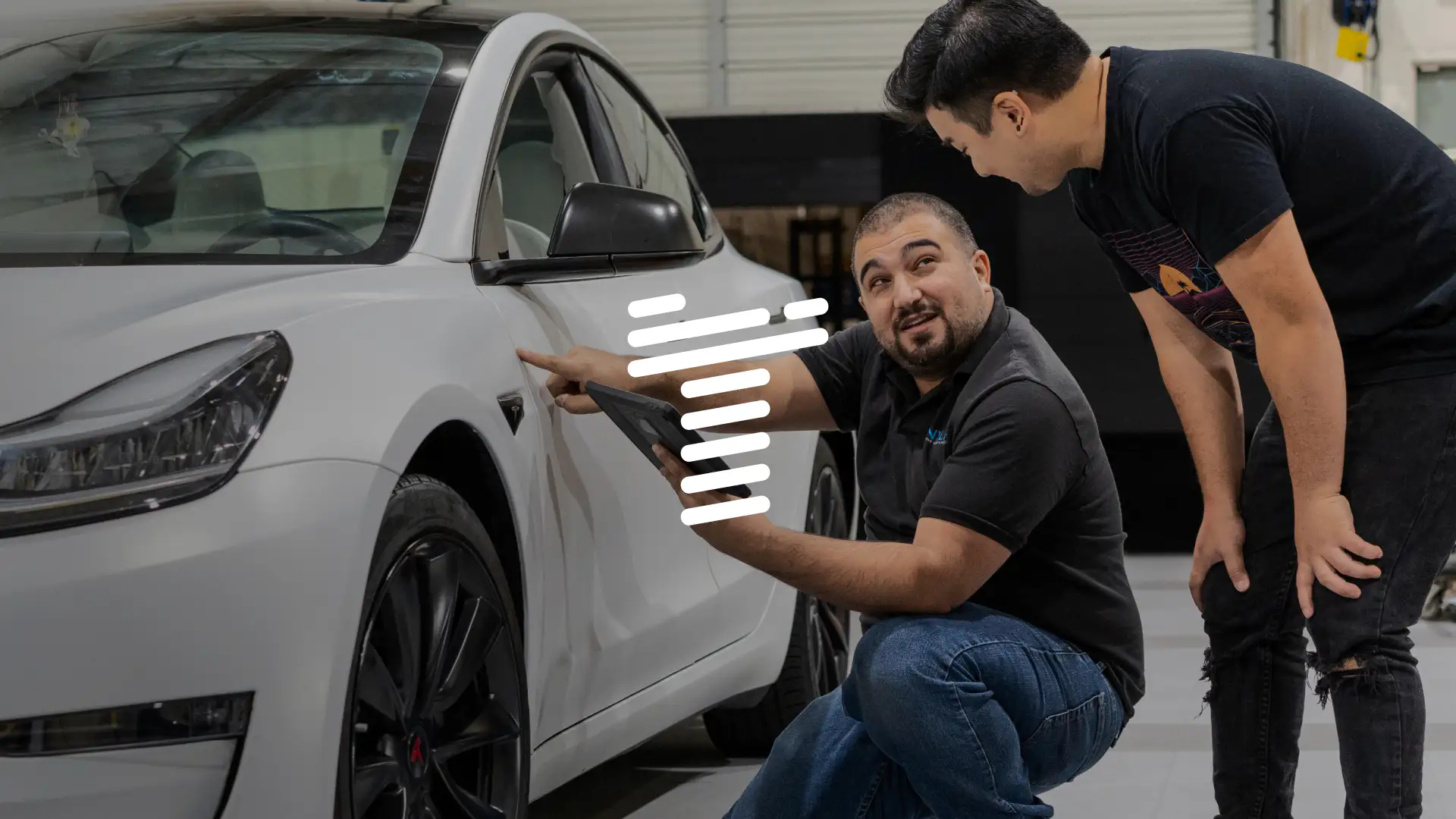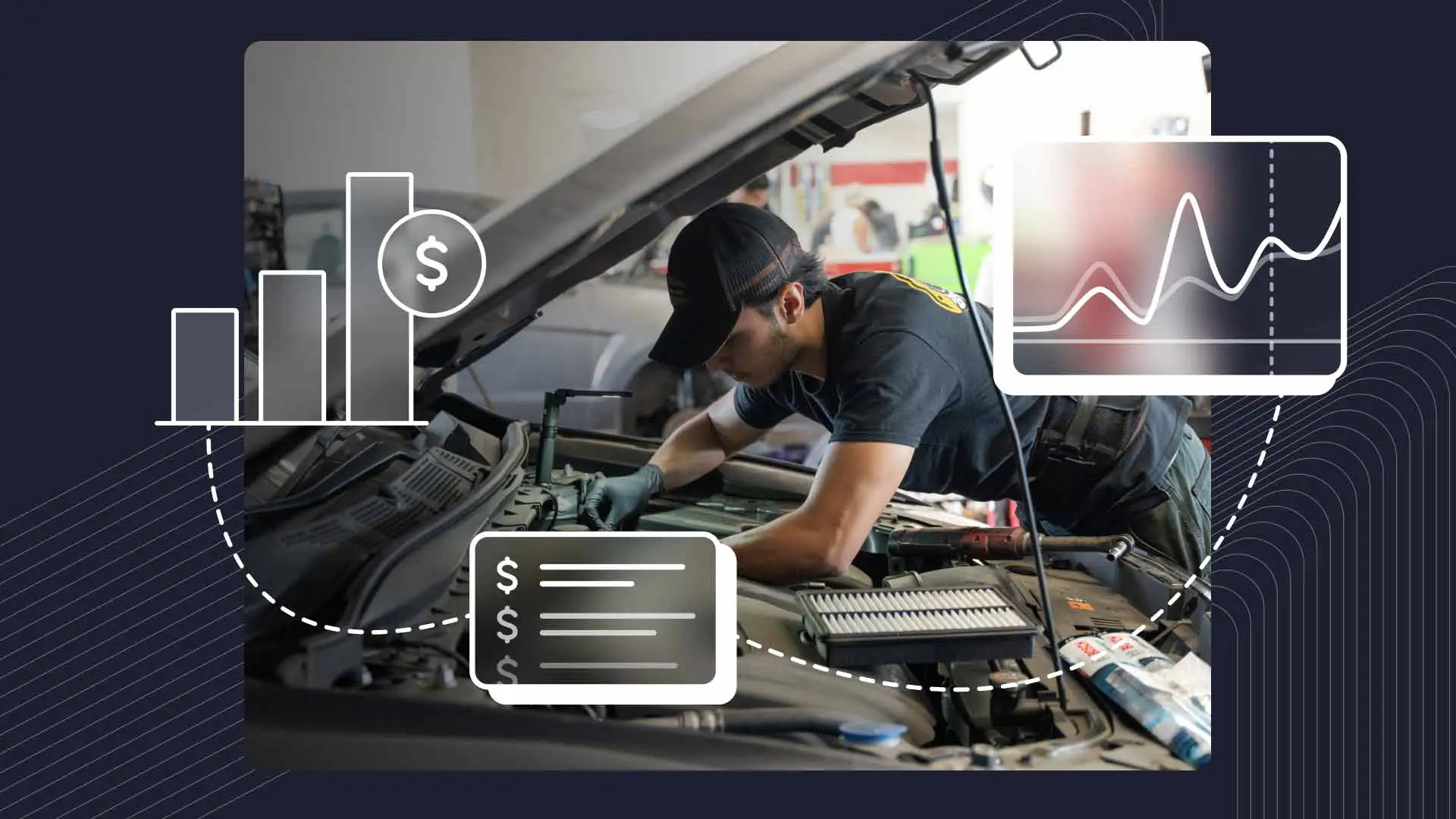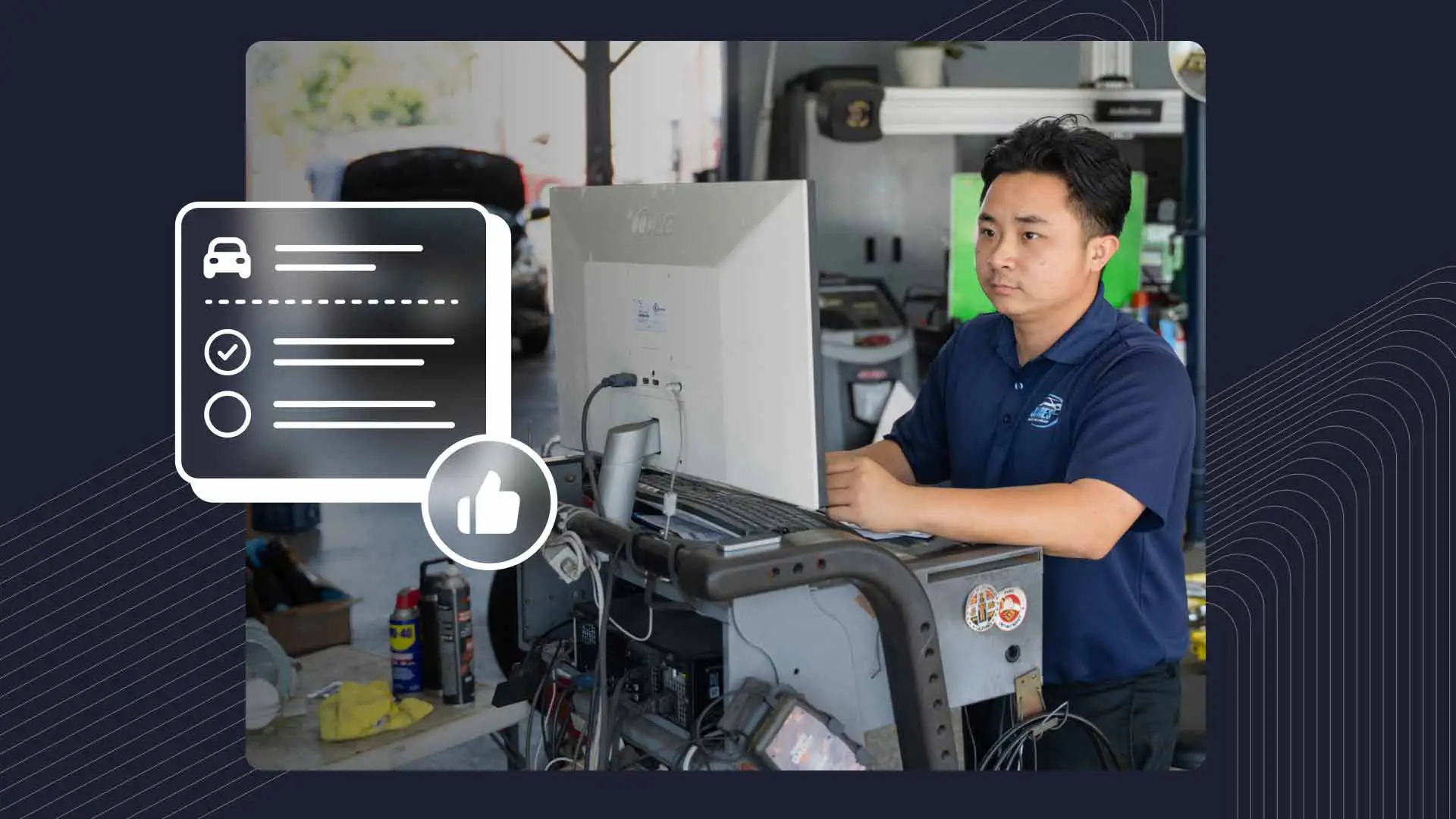Shopmonkey recently unleashed episode three of The Tune Up, a podcast devoted to timely topics impacting the automotive service industry. The conversation contains an array of first-hand experiences, witty commentary, and practical expertise about what shops can do to foster a sense of community while cultivating trustworthy relationships with customers.
The usual Tune Up Podcast crew exchanged advice about how best to address this ever-present need. Justin Simpson—the company’s Director of Experience Marketing—hosted the affair, which featured insight from Enterprise Solutions Engineer Jonathan Moretti, Director of Training and Enablement Zack Buffum, and Account Executive Gallagher Wilson. Enablement Specialist Lukasz Konior and Solutions Engineer Michael Bordeaux also joined the action.
The discussion centered on everything from informing customers about the way shops handle their vehicles’ repairs and maintenance, to adding a personal touch or two that goes a long way to winning coveted customer loyalty and repeat business.
Referrals and Incentives
Simpson got things going by framing the conversation from two perspectives: creating community as a shop owner and increasing a customer’s “trust as a car owner.” In the interest of providing incentives for customers to refer shops to other potential customers, Simpson advocated discounting purchases for loyal customers. Moretti had an alternative spin on the subject and recommended issuing discounts to new customers to achieve the same objective, while Wilson mentioned he’d do so for both types of customers.
When it comes to shop growth and attracting new customers, the panelists all seemed to favor word-of-mouth referrals over social media interactions. The bottom line, however, was best summarized by Wilson who noted, “Your highest value customers come, stay, and refer because they do business with people they like.” In other words, shop owners can count on keeping current customers and gaining ones by focusing on the individual relationships they are building. Today’s customers are drawn to a truly connected experience with the shops they’ve decided to do business with. The group then talked about the value of forging personal relationships between shop owners, employees, and customers so that, as Moretti put it, “They’ll want to sit around for 30 minutes while someone’s helping on their car.”
Customer Trust is King
The discussion became particularly compelling when the group turned its attention to solidifying trust in customers. According to Bordeaux, it’s helpful for shops to explain their processes to customers and “give them your game plan” about cost approximations and procedures for working on vehicles. Soon after, Konior recounted a positive experience he had at a shop in which its transparency and communication skills were particularly impressive. “I was wondering what’s going on and then minutes later I get an email, and a text message with photos,” Konior said. “There must’ve been at least 13 photos of the repair. Every concern I had had just been answered.”
In addition to the use of automated approaches for shops to communicate with customers, another effective means of building trust is to simply ask customers about their experience. The group talked about the usefulness of surveys for this kind of valuable feedback. Wilson also mentioned a follow-up call program with his shop in which the shop called customers because “You’ll hear from someone if they’re really upset. But if you just kind of irritated them, they’re probably not going to come back and tell you. But if you ask, usually they’ll let you know.” This is a simple move that can make the difference in a customer returning for future vehicle services versus taking their business elsewhere. Customers want to know that shops care about their satisfaction, and when their voice is heard, it can the relationship into something that has longevity and resilience.
The Personal Touch
Whether building community for a shop or getting customers to trust shops, it’s important for owners and employees to possess the soft skill of being personable—which might not come naturally. A potential remedy is for shops to give employees what Bordeaux described as “hotel hospitality training.”
This approach involves attending seminars in the hospitality industry to help shops and workers be more personable to customers—inspiring trust and creating community in the process. Wilson even referenced a shop that routinely hired employees from outside the automotive industry—in areas such as finance—because they had the interpersonal skills required to earn trust and build community.
Final Thoughts
One of the chief takeaways of the podcast was that effective communication is necessary for developing a community around shops and getting customers to trust them. “Whether that’s social media or word of mouth, it comes back to trust and communication,” Wilson observed. Moretti’s advice was to “...find whatever you like about your business or your life and bring that into the shop.” Doing so helps shops to interact with customers on a more personable and meaningful level than a mere financial one.
Simpson, however, had the final say: “As a car owner, what I want from a shop is to feel important. It’s easy to dismiss an opportunity to make someone feel they’re important, but [making them feel important] makes a huge difference and it costs nothing.”
Want to drill down deeper into this important topic? View the the full podcast episode below, or check out how Shopmonkey's auto shop marketing solutions can help your business.




